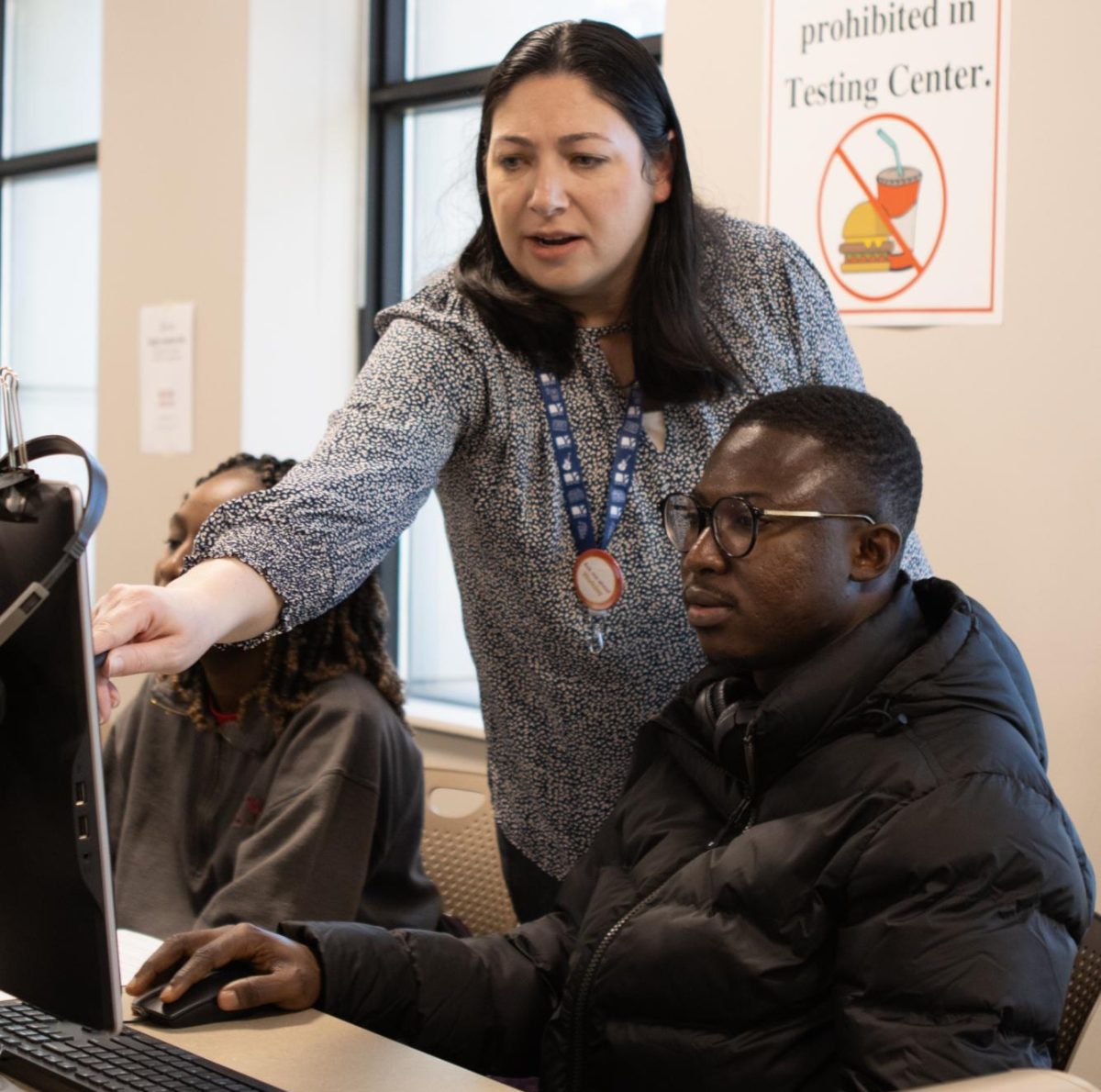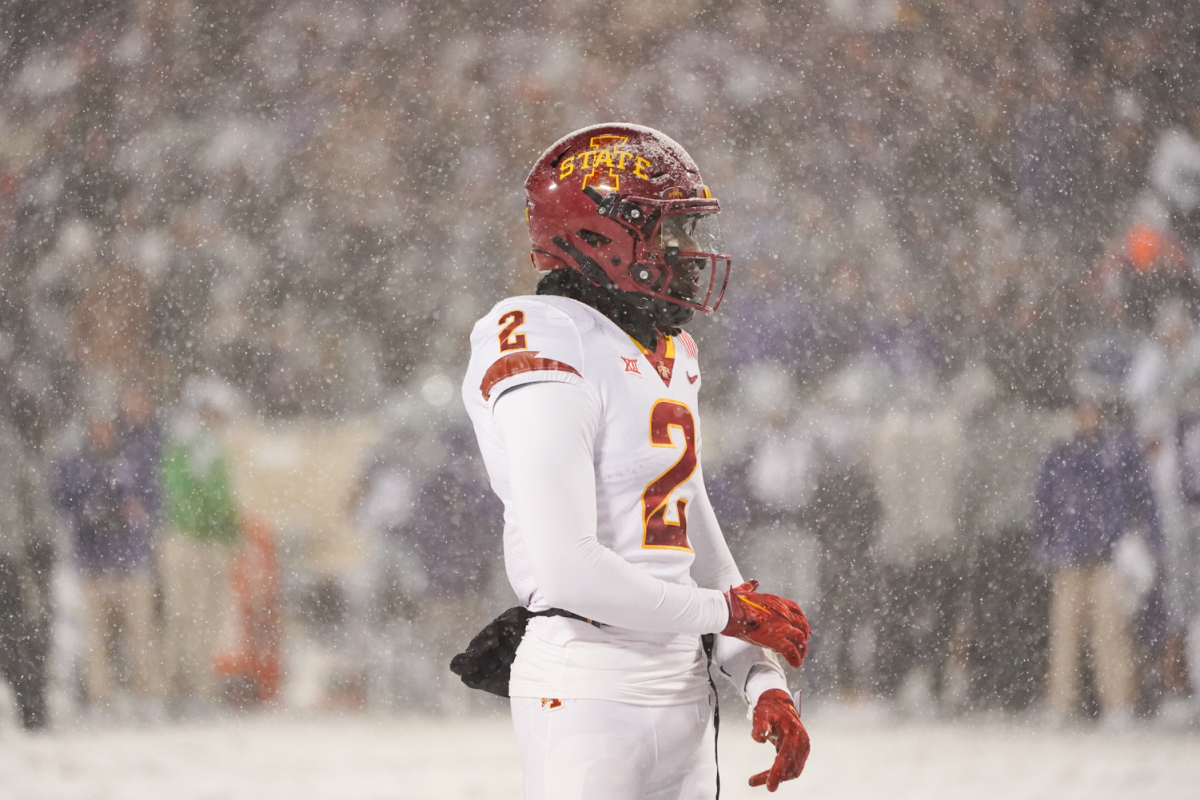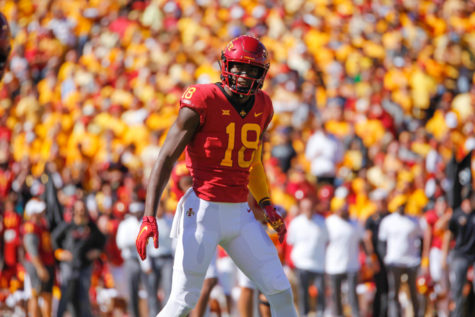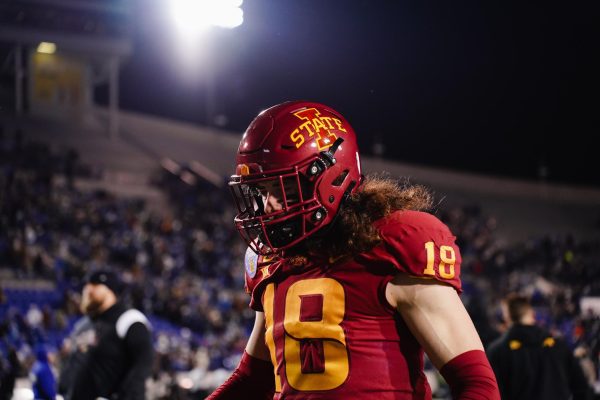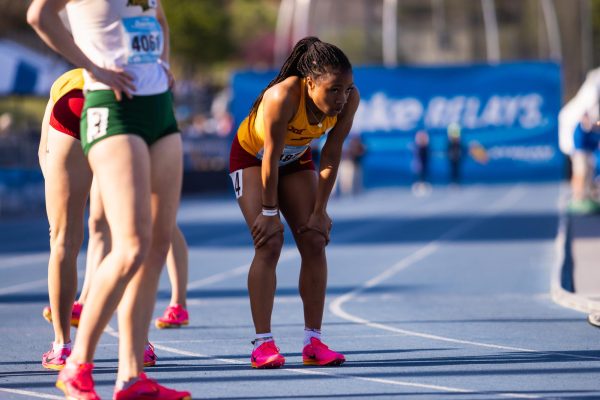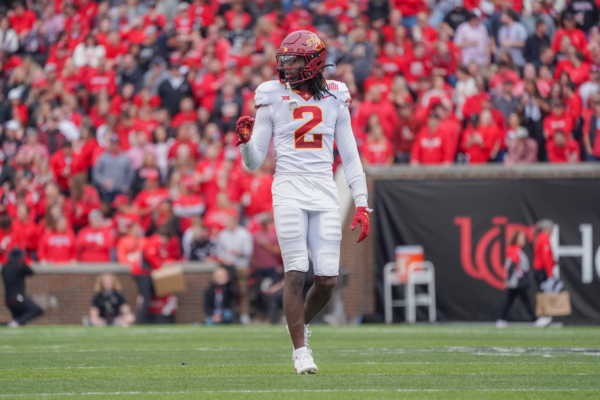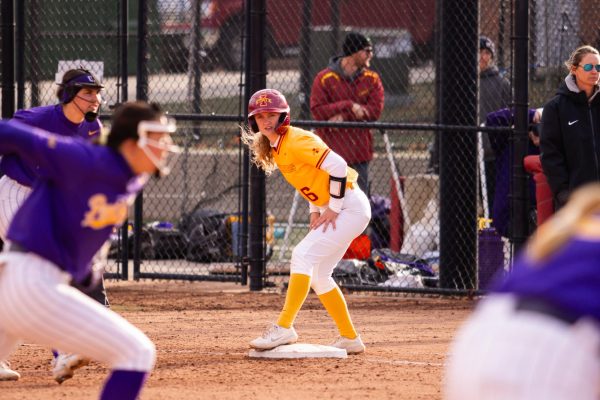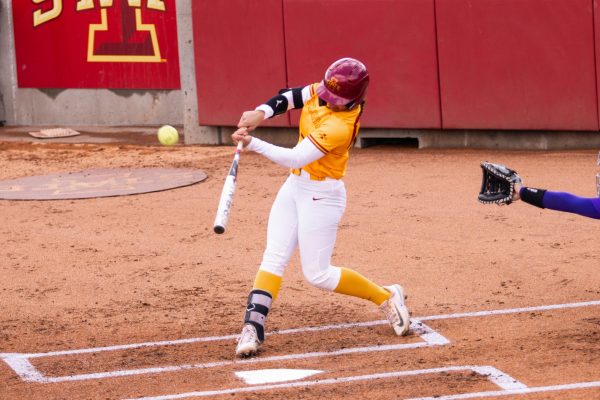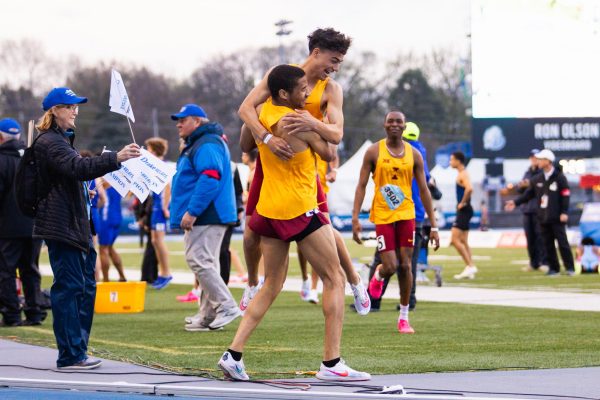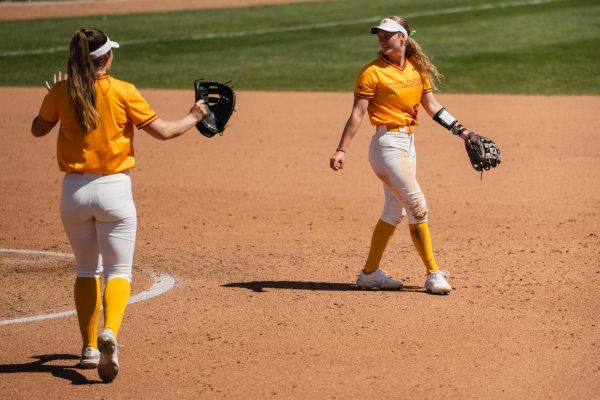June could have biggest impact in March
March 15, 2002
This knee brace is so much better than the last. With this knee brace, Erica Junod can run forward, backward, fast, slow, side-to-side.
She can stop running, just short of the defender, jump and drain a 15-footer in transition; she can dive for a loose ball, and most importantly, get up and run again.
This knee brace is great. Perhaps because it’s not a knee brace at all.
It’s a sleeve.
Junod just pulls it over her foot like a sock until it hides the scars around her right knee.
It’s kind of like a sock too – it’s black, tight-fitting, yet it inhibits no movement accustomed to women’s college basketball in the Midwest, so much better than the last one, full of hinges and hard plastics and Velcro – a cumbersome looking thing really.
The last one came off right before the Big 12 Conference Tournament, and the sleeve’s been with Junod since.
It may not be surprising that at the Big 12 tournament – with the sleeve giving Junod the unrestricted comfort she needed, and her first five games back restoring her on-court confidence – that Junod played her best basketball of the season.
“I came out and did some things that I haven’t done before. I felt like I played a lot more aggressive,” Junod says.
In the Cyclones’ third-round loss to Baylor, she scored nine points on 3-3 shooting from the three-point line in 20 minutes.
It’s also not surprising that some people see her as the supporting player who could make the biggest contribution starting Saturday against Temple in the NCAA Tournament.
Call it what you may – the unknown option, the X-factor – Erica Junod could be the Cyclone that wins games once the stars on both sides cancel out each other’s points and the leaders moot their leadership.
“This is not her first NCAA Tournament,” ISU head coach Bill Fennelly says of his sophomore guard. “I think logically, that the person from a coaching stand-point, fan stand-point, media stand-points, whatever . she should be the one we call on.”
To assume Junod would have such impact on the remaining games this year, would play such a vital role, is amazing.
On Nov. 9 of last year, doctors pulled tendons from Junod’s hamstring to her right knee.
These tendons formed her new anterior cruciate ligament (ACL). The old one was torn four days earlier in practice.
Junod was told it would be the last practice or game of her 2001-2002 season.
“I would come to practice and there were a lot of days when I didn’t want to watch them, ” she says. “I wanted to play with them.
“My whole goal was to come back, ” she says, but sometimes “you just wanted to kind of quit, you wanted to give up.”
She didn’t though.
Three times a week for two hours at a time, Junod did “strength stuff” – squats, leg lifts, riding a bike.
For another hour and a half she ran her leg under water, currents underneath shooting at her knee.
“That felt so good, ” she says.
The ice boot didn’t.
“I hated it,” Junod says.
Pulled from a freezer, this boot – that’s what it really looks like – froze her leg for 45 minutes.
The longest 45 minutes of her life. She read magazines, listened to music, did homework; anything to keep her mind off the boot.
By mid-January, Junod was jumping off boxes, doing balancing exercises, moving laterally – simulating the movements made on the court.
It was then that Mike Shaffer, Junod’s trainer, told her “You’re going to come back.”
On Feb. 9, three months to the day after her surgery, she played basketball for 15 minutes against Colorado.
“I’m surprised that anyone could come back from an ACL [injury] in three months. But I’m not surprised, it’s June,” point guard Lindsey Wilson says.
She scored five points in 24 minutes in a win over Kansas on Feb. 23, but it was not until the Big 12 tournament in Kansas City March 5 -9, scoring eight points in a first round win over Nebraska and nine in the loss to Baylor, that Junod returned to the form exhibited her freshman season.
Last year, she averaged six points a game. She played, and played a lot, in all three NCAA games.
“She’s getting better every game. She’s attacking more. She’s beginning to let herself go. Let herself play. Now that she’s been playing for a month she’s beginning to trust herself more,” Wilson says.
Some on the team and staff wonder if she trusts herself enough.
One hour into a crappy practice Wednesday, the shot clock wound down (again) while the first-team Cyclone offense was in disarray (again).
Junod passed the ball to Wilson in the corner rather than take the open three before her.
By the time Wilson passed it back, Junod had time for a wild fling of a three-pointer from 25 feet before the shot clock expired.
The shot missed badly.
Fennelly, watching all this and knowing Junod had deferred on such open threes before, went into a tirade.
Blood rushed to his cheeks and expletives fell from his mouth – some of them directed at Junod, wanting her to be more involved offensively.
There is truth to what Fennelly said.
“Even last year, there’d be times where I’d be like, `June, shoot it,'” Wilson says.
“I think she always has been a bit hesitant to shoot,” says team leading scorer Angie Welle.
“She’s got me yelling at her in the post `June, I’m open,’ so I think she kind of second-guesses herself at times.”
Junod is starting to realize this too.
“I know I was open,” Junod says of Wednesday’s practice. “I probably should have shot the ball. I mean, that’s happened more than once.”
Junod sees herself less as a scorer than a contributor – like the time she grabbed a career-high 12 rebounds against Kansas State last year or the three three-pointers she nailed against Baylor in the Big 12 tournament this year.
Yet, she’s listened to what Fennelly says.
If she has the open shot at the end of the game, she’s taking it, which is something Fennelly likes to hear.
And something he knows to be true.
“Playing under pressure situations in big games and having major roles in those games is not new to her. So I feel very good about how she’s going to handle it.”

